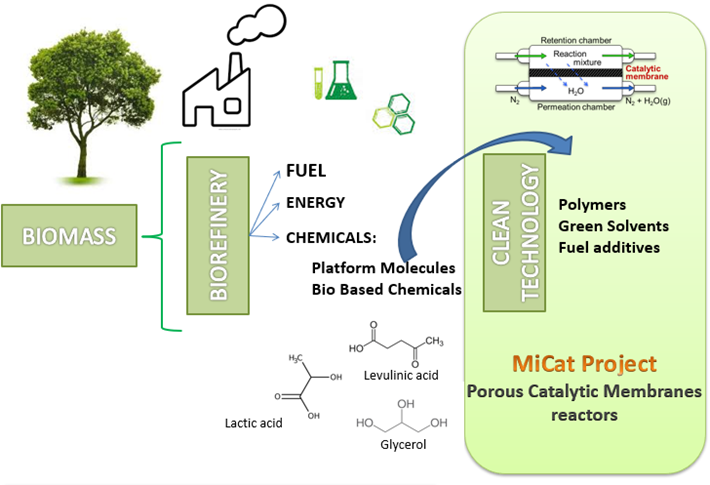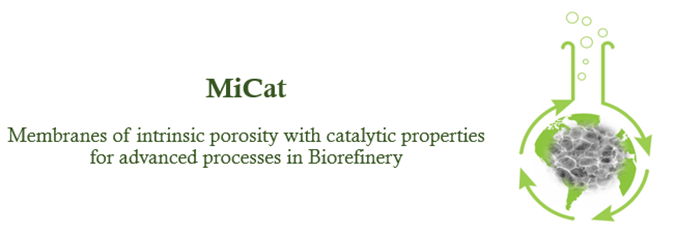Project

MiCat is an exploratory project supported by PT national funds (FCT/MCTES, Fundação para a Ciência e Tecnologia and Ministério da Ciência, Tecnologia e Ensino Superior) with the reference 2022/05483/PTDC.
To be able to apply new technologies in catalytic production processes, as is the case of membrane reactors, it is necessary to develop materials designed to enhance and make economically and environmentally viable the use of the technology.
The MiCat project aims to answer the question: “will it be possible to apply the technology of membrane reactors to biorefineries, for the transformation and purification of chemicals derived from biomass, with a clear benefit for increasing the environmental and economic sustainability of the process?” to which follows the questions” Which membranes can respond positively? what materials do we need to develop?”
Thus MiCat project aims to develop high added value polymeric membranes and novel manufacturing technologies for more efficient production of biobasedchemicals.
Innovative catalytic polymeric membranes with intrinsic porosity, based on PIMs (polymers of intrinsic microporosity) will be developed and applied for the production and purification of biobased chemicals and derivatives in a single step by using membrane reactors in a continuous operation mode.
The MiCat project will develop and validate this technology for the esterification reaction of biomass-derived platform molecules, such as levulinic acid, glycerol, and lactic acid.
MiCat project will go beyond the state of art by ensuring robust and reliable membranes, which will have specific functionalities that allow their application as catalysts. The main challenge is to combine mechanical and structural properties with the chemical properties required, and these issues will be addressed by employing advanced techniques that enhance the PIMs characteristics.
The MiCat project simplifies the installed traditional processes in several ways and globally, the catalytic polymeric membrane process wants to reduce (i) energy consumption, (ii) greenhouse gas (GHG) emissions, and (iii) chemical reagents and water demands used in bioderived chemical production, being especially advantageous for allowing the chemical reaction and separation of reagents and/or products to be combined in a single unit.
